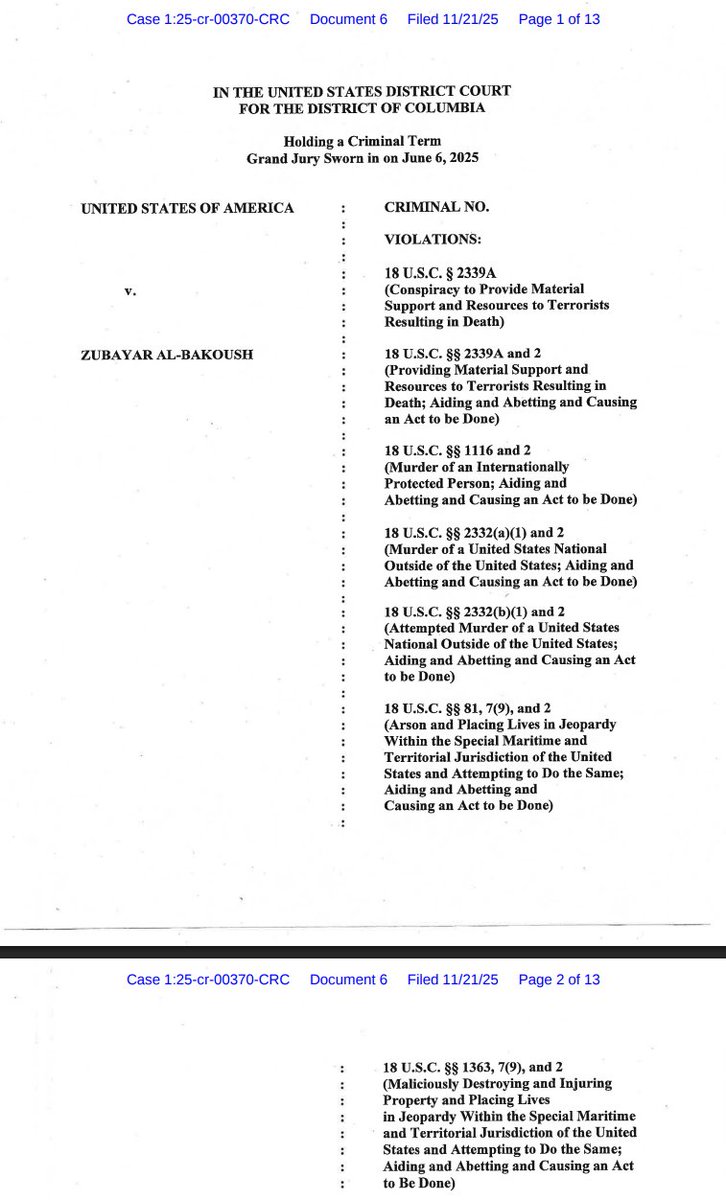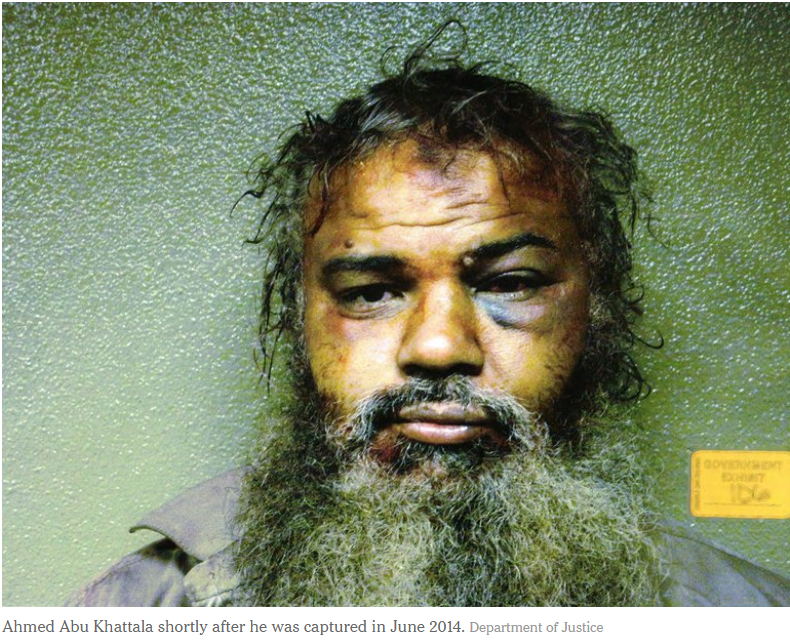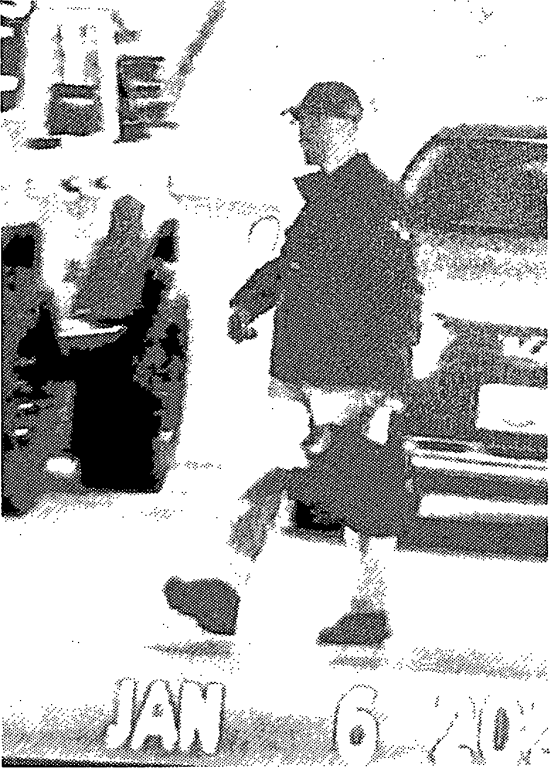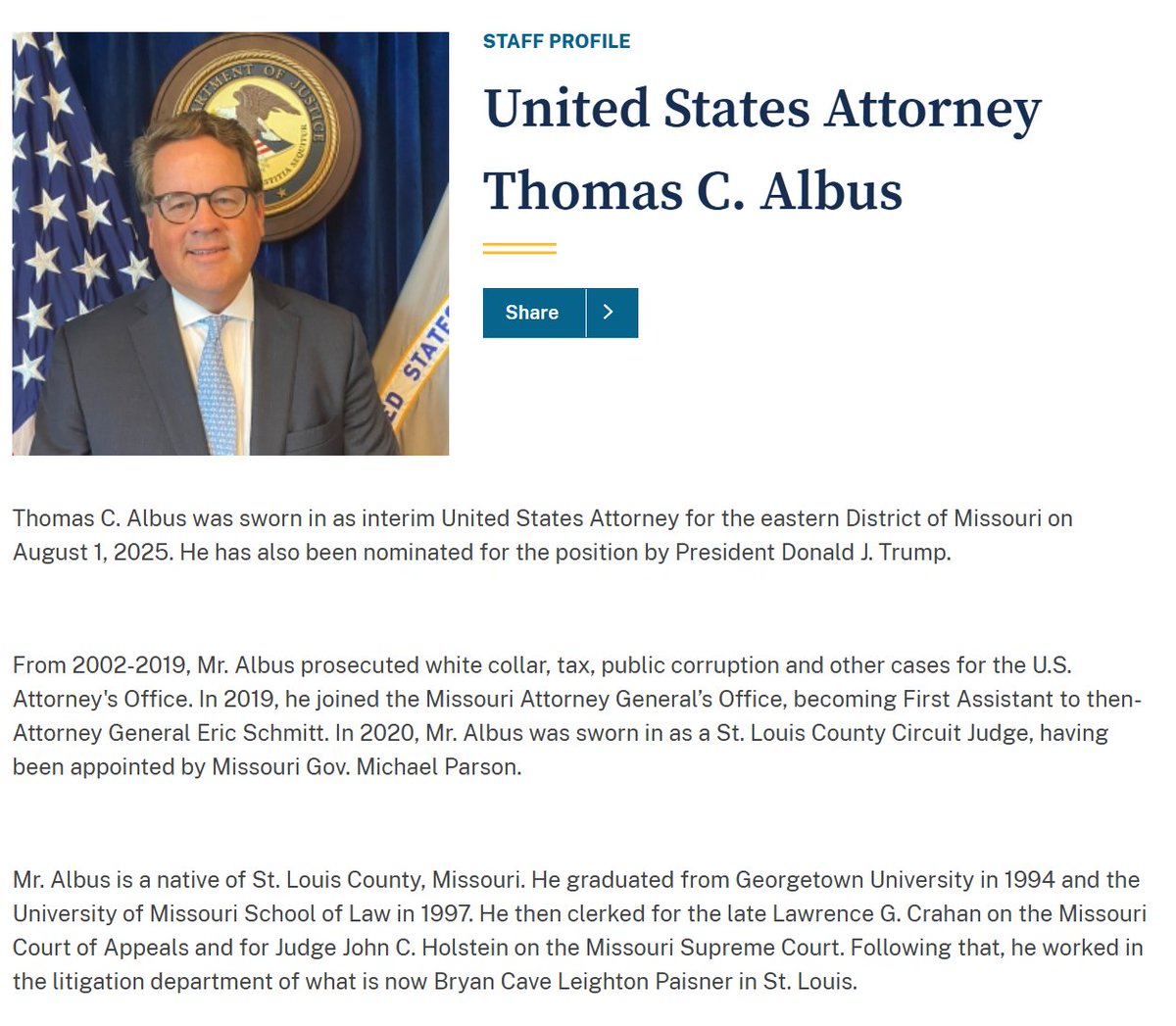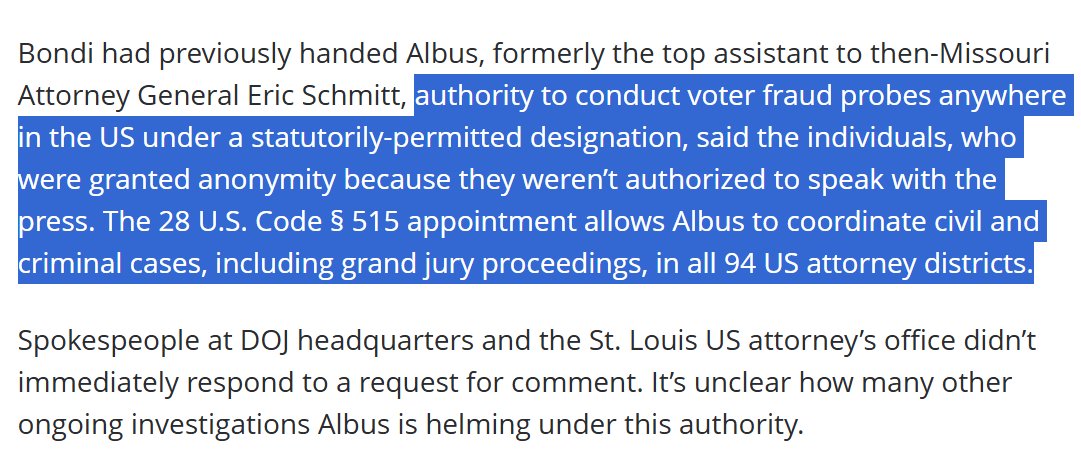Huddleston v. FBI
(Seth Rich FOIA Case)
Judge Mezzant has issued two Memorandum Opinions and Orders this morning.
Plaintiff’s Corrected Motion for Summary Judgment (Dkt. #112). DENIED
Defendants’ Motion for Summary Judgment Regarding FOIA Exemption 7(A) (Dkt. #148) DENIED
storage.courtlistener.com/recap/gov.usco…
storage.courtlistener.com/recap/gov.usco…
(Seth Rich FOIA Case)
Judge Mezzant has issued two Memorandum Opinions and Orders this morning.
Plaintiff’s Corrected Motion for Summary Judgment (Dkt. #112). DENIED
Defendants’ Motion for Summary Judgment Regarding FOIA Exemption 7(A) (Dkt. #148) DENIED
storage.courtlistener.com/recap/gov.usco…
storage.courtlistener.com/recap/gov.usco…
First, let's look at the one concerning Plaintiff’s Corrected Motion for Summary Judgment (Dkt. #112)

"This motion requests for the Court to allow Huddleston to conduct discovery and order the FBI to conduct additional searches for records from additional sources and additional categories of records." 

The Court considers:
1) "...whether Huddleston’s frequent usage of news articles as summary judgment evidence is appropriate."
2) "...whether Huddleston may challenge the adequacy of the FBI’s search by engaging in mere speculation that not yet uncovered documents may exist."
3) "...whether Huddleston may challenge the adequacy of the FBI’s search on the grounds that other documents possibly responsive to his request may exist."
4) "...whether discovery is appropriate in this case."
"the Court will not address Huddleston’s argument that the Court should compel the FBI to search its digital evidence files, specifically Seth Rich’s laptop(s). Both the FBI and Huddleston agree that this issue has already been fully briefed in different motions"
"The Court does not address the FBI’s argument that Huddleston has attempted to amend his FOIA request via emails... The Court resolves Huddleston’s arguments on different grounds."

1) "...whether Huddleston’s frequent usage of news articles as summary judgment evidence is appropriate."
2) "...whether Huddleston may challenge the adequacy of the FBI’s search by engaging in mere speculation that not yet uncovered documents may exist."
3) "...whether Huddleston may challenge the adequacy of the FBI’s search on the grounds that other documents possibly responsive to his request may exist."
4) "...whether discovery is appropriate in this case."
"the Court will not address Huddleston’s argument that the Court should compel the FBI to search its digital evidence files, specifically Seth Rich’s laptop(s). Both the FBI and Huddleston agree that this issue has already been fully briefed in different motions"
"The Court does not address the FBI’s argument that Huddleston has attempted to amend his FOIA request via emails... The Court resolves Huddleston’s arguments on different grounds."


1) "Huddleston’s usage of news articles as summary judgment evidence is not appropriate because the articles constitute inadmissible hearsay."

2) "Huddleston makes six arguments challenging the FBI’s search as inadequate by engaging in mere speculation that as of yet uncovered records may exist...
Such speculation is insufficient to challenge the FBI’s search as inadequate."
Such speculation is insufficient to challenge the FBI’s search as inadequate."

3) "Huddleston’s request questions whether other documents possibly responsive to the FOIA request might exist without creating substantial doubt as to the sufficiency of the FBI’s search."



4) "The Court finds that discovery is not warranted in this case because Huddleston has not shown that the FBI acted in bad faith."
"Assuming that the findings in the Durham Report have a direct bearing on this case, the Durham Report never found that the FBI acted in bad faith (Dkt. #133-1). Rather, the Durham Report found that confirmation bias played a significant role in the FBI’s less [than] ideally executed investigation into matters related to intelligence activities and investigations arising out of the 2016 presidential campaigns..."

"Assuming that the findings in the Durham Report have a direct bearing on this case, the Durham Report never found that the FBI acted in bad faith (Dkt. #133-1). Rather, the Durham Report found that confirmation bias played a significant role in the FBI’s less [than] ideally executed investigation into matters related to intelligence activities and investigations arising out of the 2016 presidential campaigns..."


"Huddleston has not sufficiently persuaded the Court that there is tangible evidence of bad faith sufficient to justify discovery."
Plaintiff’s Corrected Motion for Summary Judgment (Dkt. #112) is DENIED.
Plaintiff’s Corrected Motion for Summary Judgment (Dkt. #112) is DENIED.

This is about "whether the Government may categorically withhold the Work Laptop and the Personal Laptop pursuant to FOIA Exemption 7(A)"

For more background, I have threads here
https://x.com/realjusthuman/status/1745878990303494343
"The Government does not satisfy the second element, which requires a document-by-document review in order to assign documents to the proper category."

"Under categorical withholding, an agency may provide descriptions of categories of documents, rather than a description of every specific document being withheld.
However, the agency still “must conduct a document-by-document review in order to assign documents to the proper category.”
"The Government has not put forward any evidence suggesting that it has conducted a document-by-document review of the documents within the Work Laptop and the Personal Laptop in order to assign the documents to the proper category."
"Even if a document-by-document review may require arduous efforts by the Government, it remains a requirement of categorical withholding."
However, the agency still “must conduct a document-by-document review in order to assign documents to the proper category.”
"The Government has not put forward any evidence suggesting that it has conducted a document-by-document review of the documents within the Work Laptop and the Personal Laptop in order to assign the documents to the proper category."
"Even if a document-by-document review may require arduous efforts by the Government, it remains a requirement of categorical withholding."

"The Government has not satisfied this second requirement. Therefore, the Government is not entitled to judgment as a matter of law."

"...the Government must first conduct a document-by-document review of the documents within the Work Laptop and the Personal Laptop..
"the Government must either produce the Vaughn indexes or file a motion for summary judgment regarding the documents within the Work Laptop and the Personal Laptop by February 7, 2025."
"the Government must either produce the Vaughn indexes or file a motion for summary judgment regarding the documents within the Work Laptop and the Personal Laptop by February 7, 2025."

"ORDERED the Government shall conduct and complete by February 7, 2025 a document-by-document review of the information it possesses on the compact disk containing images of Seth Rich’s personal laptop, Seth Rich’s work laptop, the DVD, and the tape drive that is responsive to Plaintiff’s FOIA requests."
"ORDERED the Government shall either (1) produce Vaughn indexes addressing the information it possesses on the compact disk containing images of Seth Rich’s personal laptop, Seth Rich’s work laptop, the DVD, and the tape drive that is responsive to Plaintiff’s FOIA requests by February 7, 2025; or (2) file a motion for summary judgment regarding the information it possesses on the compact disk containing images of Seth Rich’s personal laptop, Seth Rich’s work laptop, the DVD, and the tape drive that is responsive to Plaintiff’s FOIA requests by February 7, 2025."
"ORDERED the Government shall either (1) produce Vaughn indexes addressing the information it possesses on the compact disk containing images of Seth Rich’s personal laptop, Seth Rich’s work laptop, the DVD, and the tape drive that is responsive to Plaintiff’s FOIA requests by February 7, 2025; or (2) file a motion for summary judgment regarding the information it possesses on the compact disk containing images of Seth Rich’s personal laptop, Seth Rich’s work laptop, the DVD, and the tape drive that is responsive to Plaintiff’s FOIA requests by February 7, 2025."

• • •
Missing some Tweet in this thread? You can try to
force a refresh



